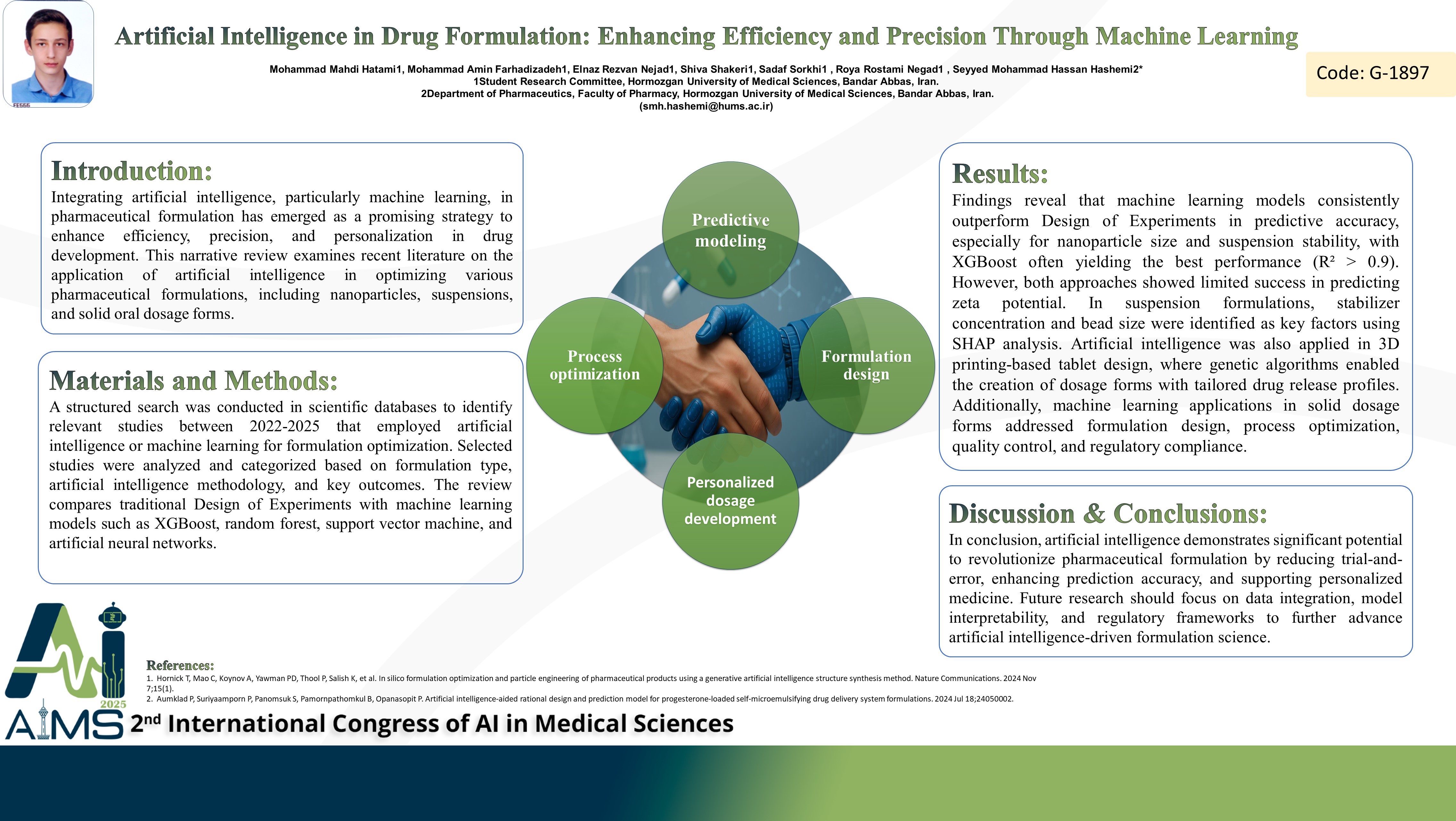هوش مصنوعی در فرمولاسیون دارو: افزایش کارایی و دقت از طریق یادگیری ماشینی
کد: G-1897
نویسندگان: Mohammad Mahdi Hatami ℗, , Mohammad Amin Farhadizadeh, Elnaz Rezvan Nejad, Shiva Shakeri, Sadaf Sorkhi, Roya Rostami Negad, Seyyed Mohammad Hassan Hashemi *
زمان بندی: زمان بندی نشده!
برچسب: کشف و طراحی دارو
دانلود: دانلود پوستر
خلاصه مقاله:
خلاصه مقاله
Background: Integrating artificial intelligence, particularly machine learning, in pharmaceutical formulation has emerged as a promising strategy to enhance efficiency, precision, and personalization in drug development. This narrative review examines recent literature on the application of artificial intelligence in optimizing various pharmaceutical formulations, including nanoparticles, suspensions, and solid oral dosage forms. Method: A structured search was conducted in scientific databases to identify relevant studies between 2022-2025 that employed artificial intelligence or machine learning for formulation optimization. Selected studies were analyzed and categorized based on formulation type, artificial intelligence methodology, and key outcomes. The review compares traditional Design of Experiments with machine learning models such as XGBoost, random forest, support vector machine, and artificial neural networks. Results: Findings reveal that machine learning models consistently outperform Design of Experiments in predictive accuracy, especially for nanoparticle size and suspension stability, with XGBoost often yielding the best performance (R² 0.9). However, both approaches showed limited success in predicting zeta potential. In suspension formulations, stabilizer concentration and bead size were identified as key factors using SHAP analysis. Artificial intelligence was also applied in 3D printing-based tablet design, where genetic algorithms enabled the creation of dosage forms with tailored drug release profiles. Additionally, machine learning applications in solid dosage forms addressed formulation design, process optimization, quality control, and regulatory compliance. Conclusion: In conclusion, artificial intelligence demonstrates significant potential to revolutionize pharmaceutical formulation by reducing trial-and-error, enhancing prediction accuracy, and supporting personalized medicine. Future research should focus on data integration, model interpretability, and regulatory frameworks to further advance artificial intelligence-driven formulation science.
کلمات کلیدی
Artificial Intelligence, Machine Learning, Pharmaceutical Industry
